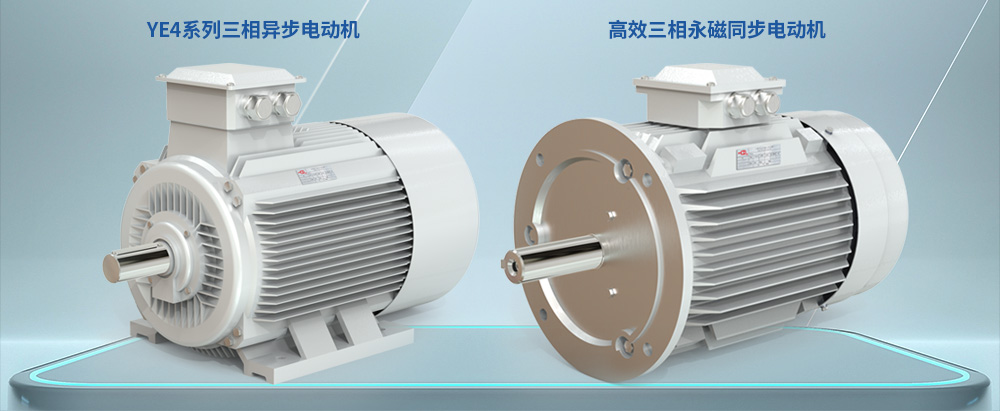
news
discussion on the advantages of high-efficiency and energy-saving motors
2023-10-19 10:26:25来源:
efficient and energy-saving motor is a type of motor that can utilize electrical energy more efficiently under the same working conditions. compared to traditional motors, it can achieve higher energy utilization rates, thereby reducing electrical energy loss and achieving energy-saving effects. this article will focus on the advantages of efficient and energy-saving motors.

the energy-saving effect of high-efficiency energy-saving motors is mainly manifested in the following aspects.
firstly, efficient and energy-saving motors can reduce energy waste during the energy conversion process. traditional motors have certain losses when transmitting electrical energy, such as heat generated by current, energy loss caused by friction, etc. efficient and energy-saving motors reduce these energy losses by adopting advanced design, materials, and technology, enabling more effective conversion of electrical energy into mechanical energy and reducing waste of electrical energy.
secondly, efficient and energy-saving motors can adjust their operating status under partial or low load conditions, reducing unnecessary electrical energy consumption. traditional motors still operate at full load under low load conditions, leading to serious energy waste. efficient and energy-saving motors have adaptive load adjustment function, which can adjust their operating status according to the actual load situation, only outputting the required power, thereby avoiding excessive energy consumption.
in addition, efficient and energy-saving motors also have optimized designs in the motor control system, achieving precise control of the motor through the use of advanced sensors, frequency converters, and other equipment. in this way, efficient and energy-saving motors can flexibly adjust their speed and load according to work requirements, improving operational efficiency and reducing unnecessary energy consumption.
overall, high-efficiency energy-saving motors can utilize electrical energy more efficiently, reduce energy losses, and achieve energy-saving effects compared to traditional motors under the same working conditions. the specific power savings depend on various factors such as the model, specifications, and usage conditions of the motor. according to statistical data, in actual use, replacing traditional motors with high-efficiency and energy-saving motors can reduce electrical energy loss by 10% to 30% annually. this means that businesses or individuals can reduce electricity costs and have a positive impact on the environment by replacing efficient and energy-saving motors.
not only that, efficient and energy-saving motors also have many other advantages. firstly, due to its higher energy utilization rate, it can reduce the load demand on the power grid, reduce the power supply pressure on the grid, and improve the reliability and stability of the grid. secondly, efficient and energy-saving motors generate less heat during operation, reducing the cost and energy consumption of cooling and heat dissipation. in addition, due to the small impact of efficient and energy-saving motors on the environment, their service life is longer, and the frequency of repair and replacement is correspondingly reduced, reducing the maintenance costs of enterprises and individuals.
in summary, efficient and energy-saving motors have achieved effective energy-saving effects by improving energy utilization, flexibly adjusting operating conditions, and optimizing motor control systems. although the specific energy savings depend on factors such as the model and usage conditions of the motor, overall, efficient and energy-saving motors are a feasible and effective energy-saving solution, which can reduce electricity costs and have a positive impact on the environment. therefore, in practical applications, promoting and adopting high-efficiency energy-saving motors is an important energy-saving measure.
